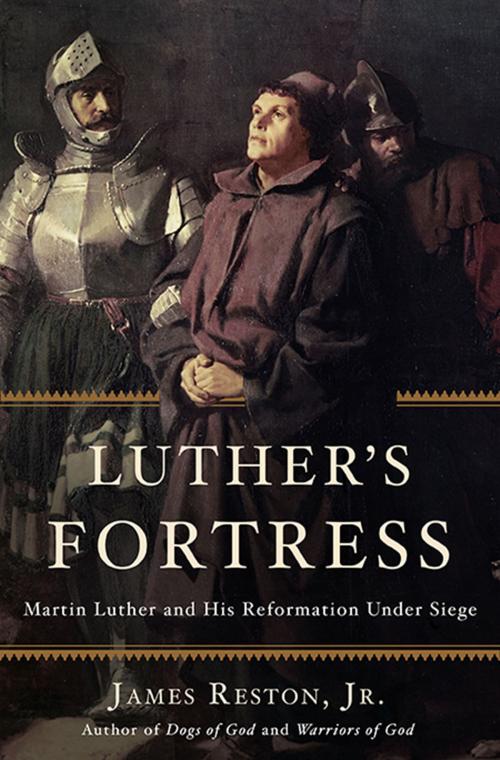Luther's Fortress
Martin Luther and His Reformation Under Siege
Nonfiction, History, Medieval, Religion & Spirituality, Christianity, Church| Author: | James Reston | ISBN: | 9780465057979 |
| Publisher: | Basic Books | Publication: | May 5, 2015 |
| Imprint: | Basic Books | Language: | English |
| Author: | James Reston |
| ISBN: | 9780465057979 |
| Publisher: | Basic Books |
| Publication: | May 5, 2015 |
| Imprint: | Basic Books |
| Language: | English |
In 1521, the Catholic Church declared war on Martin Luther. The German monk had already been excommunicated the year before, after nailing his Ninety-Five Theses-which accused the Church of rampant corruption-to the door of a Saxon church. Now, the Holy Roman Emperor Charles V called for Luther to be apprehended and punished as a notorious heretic.” The edict was akin to a death sentence: If Luther was caught, he would almost inevitably be burned at the stake, his fragile movement crushed, and the nascent Protestant Reformation strangled in its cradle.
In Luther's Fortress, acclaimed historian James Reston, Jr. describes this crucial but little-known episode in Luther's life and reveals its pivotal role in Christian history. Realizing the danger to their leader, Luther's followers spirited him away to Wartburg Castle, deep in central Germany. There he hid for the next ten months, as his fate-and that of the Reformation-hung in the balance. Yet instead of cowering in fear, Luther spent his time at Wartburg strengthening his movement and refining his theology in ways that would guarantee the survival of Protestantism. He devoted himself to biblical study and spiritual contemplation; he fought both his papist critics and his own inner demons (and, legend has it, the devil himself); and he held together his fractious and increasingly radicalized reform movement from afar. During this time Luther also crystallized some of his most significant ideas about Christianity and translated the New Testament into German-an accomplishment that, perhaps more than any other, solidified his legacy and spread his bold new religious philosophy across Europe.
Drawing on Luther's correspondence, notes, and other writings, Luther's Fortress presents an earthy, gripping portrait of the Reformation's architect at this transformational moment, revealing him at his most productive, courageous, and profound.
In 1521, the Catholic Church declared war on Martin Luther. The German monk had already been excommunicated the year before, after nailing his Ninety-Five Theses-which accused the Church of rampant corruption-to the door of a Saxon church. Now, the Holy Roman Emperor Charles V called for Luther to be apprehended and punished as a notorious heretic.” The edict was akin to a death sentence: If Luther was caught, he would almost inevitably be burned at the stake, his fragile movement crushed, and the nascent Protestant Reformation strangled in its cradle.
In Luther's Fortress, acclaimed historian James Reston, Jr. describes this crucial but little-known episode in Luther's life and reveals its pivotal role in Christian history. Realizing the danger to their leader, Luther's followers spirited him away to Wartburg Castle, deep in central Germany. There he hid for the next ten months, as his fate-and that of the Reformation-hung in the balance. Yet instead of cowering in fear, Luther spent his time at Wartburg strengthening his movement and refining his theology in ways that would guarantee the survival of Protestantism. He devoted himself to biblical study and spiritual contemplation; he fought both his papist critics and his own inner demons (and, legend has it, the devil himself); and he held together his fractious and increasingly radicalized reform movement from afar. During this time Luther also crystallized some of his most significant ideas about Christianity and translated the New Testament into German-an accomplishment that, perhaps more than any other, solidified his legacy and spread his bold new religious philosophy across Europe.
Drawing on Luther's correspondence, notes, and other writings, Luther's Fortress presents an earthy, gripping portrait of the Reformation's architect at this transformational moment, revealing him at his most productive, courageous, and profound.















